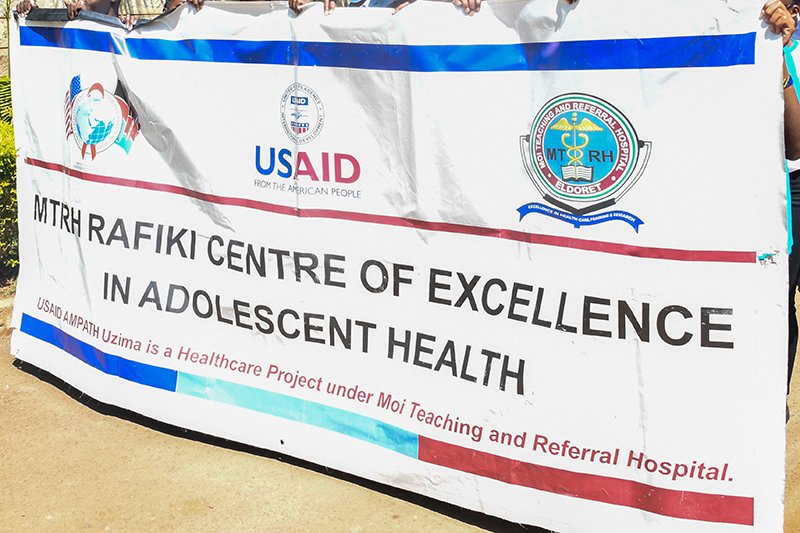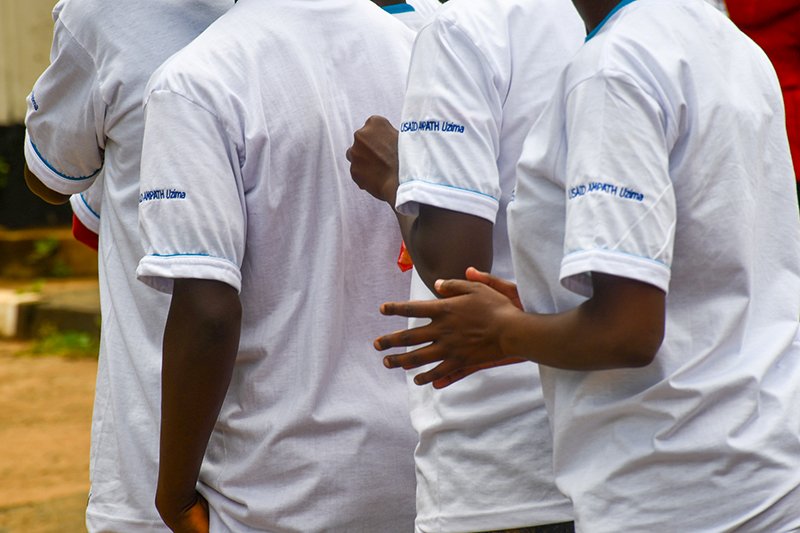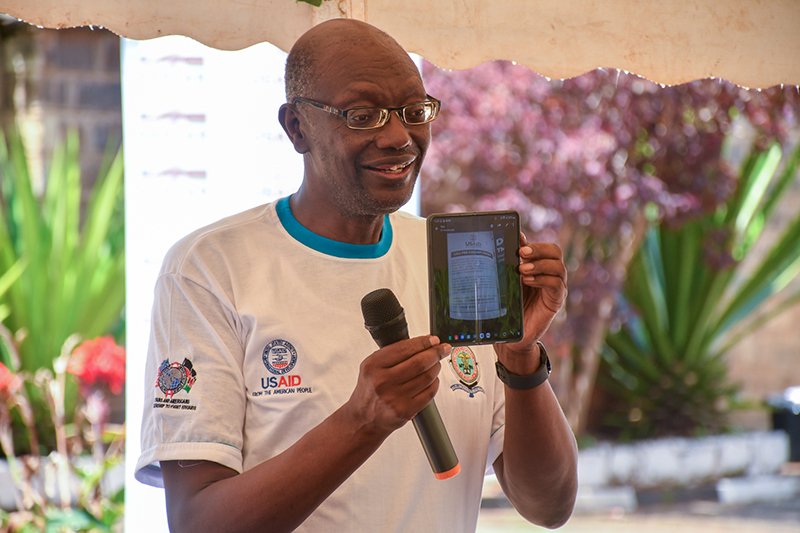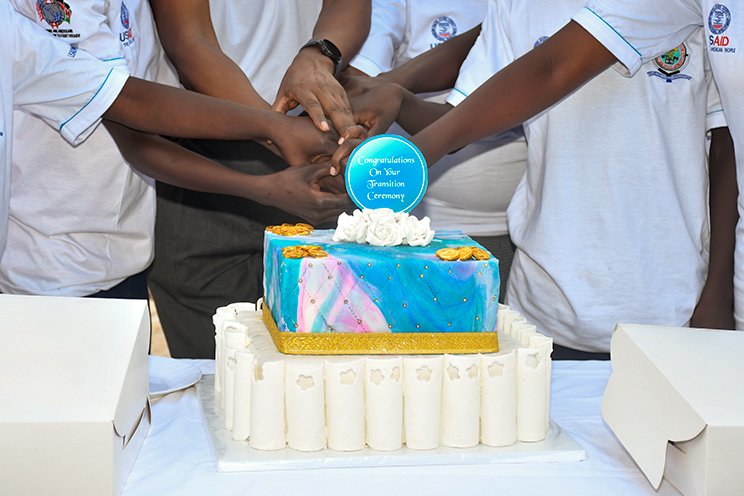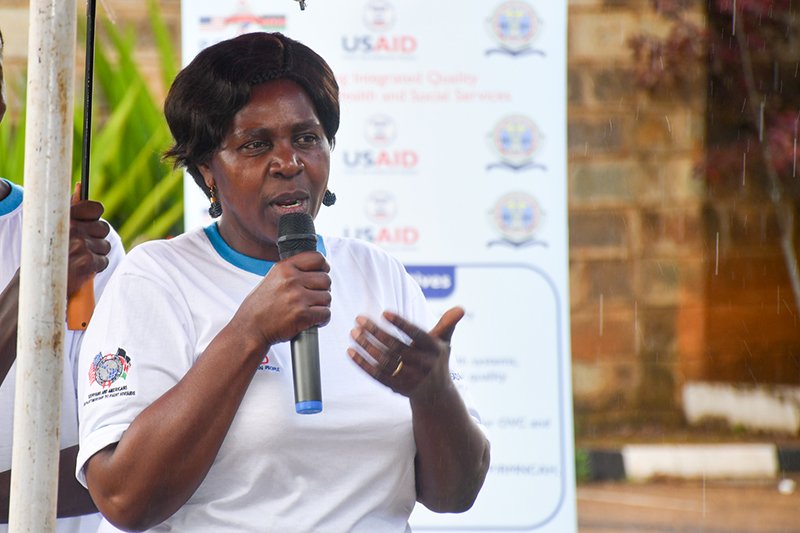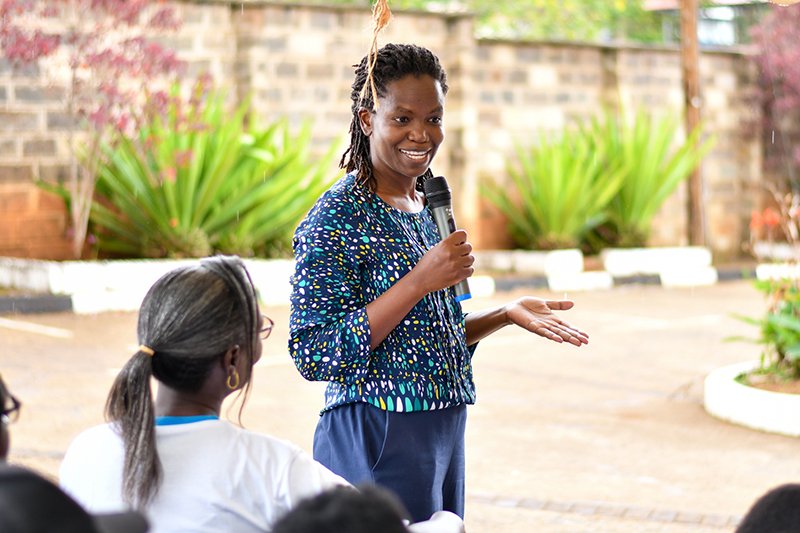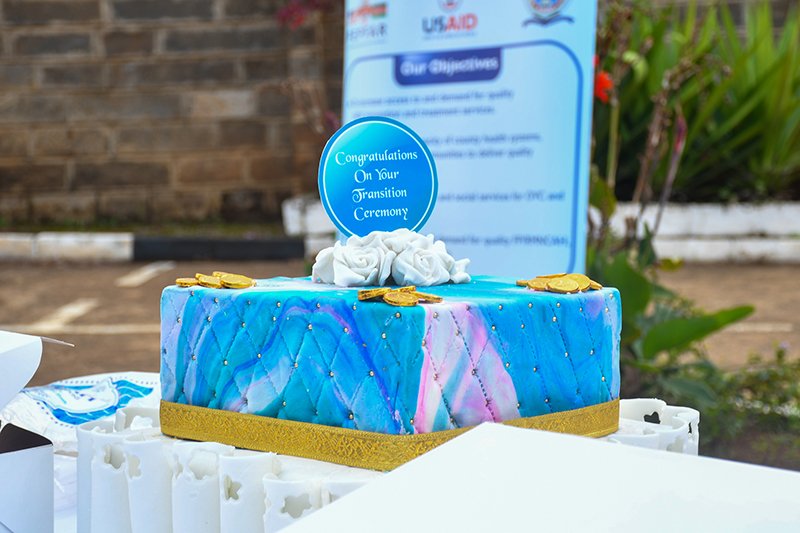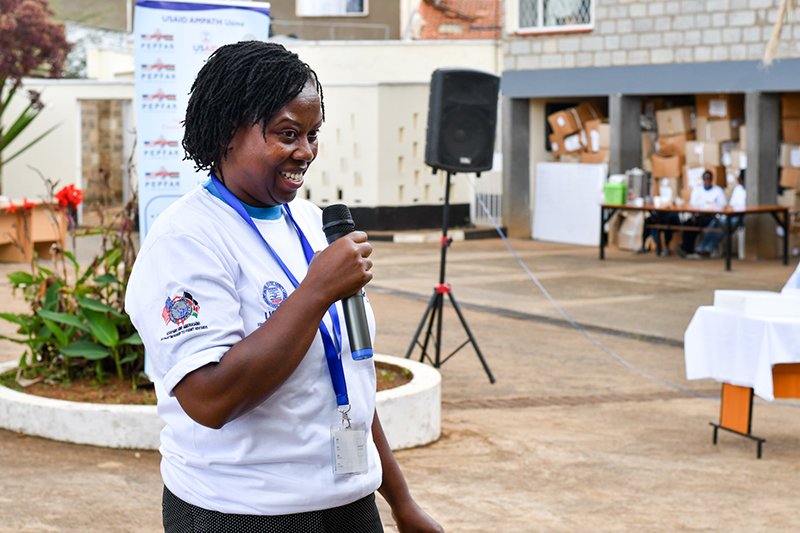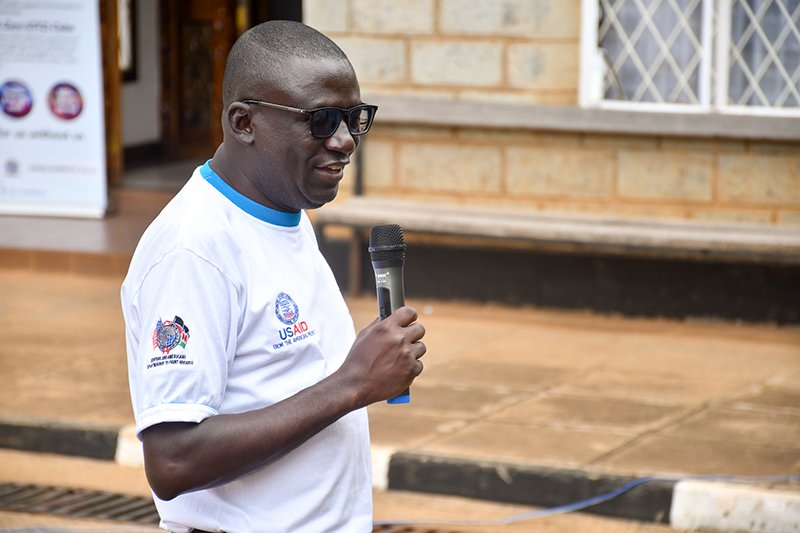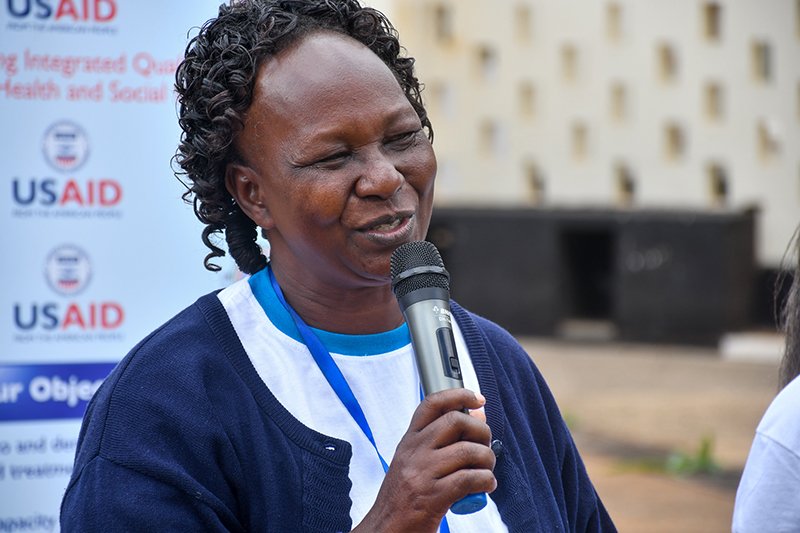Adolescents Transition to MTRH Rafiki Centre
In April, USAID AMPATH Uzima transitioned 85 adolescents from its Module Four pediatric clinic to the MTRH Rafiki Centre of Excellence in Adolescent Health. The ceremony began with a vibrant procession from the AMPATH Centre to the Rafiki Centre, symbolizing the journey these young people are embarking on as they step into a new phase of life and care.
Victor Cheboi, a clinician from Module Four, emphasized the significance of this transition. "Once the adolescents reach the age of 15, they move to the Rafiki Clinic, where they will receive specialized care and have the opportunity to interact with peers," he explained. This change is not just in the healthcare setting but is a crucial step in their development.
The transition ceremony was enriched with entertainment and speeches from the Module Four pediatric clinic, as well as from parents, staff and peers from the Rafiki Clinic. These narratives underscored the collaborative effort and dedication invested in preparing these adolescents for the next stages of their lives.
Dr. Beatrice Jakait, the deputy chief of party at USAID AMPATH Uzima, described the event as a pivotal moment for the attendees. "This is an important event and there are many of us who will mark it as a turning point in your lives. We're here to support you," she declared, acknowledging the efforts of the parents and guardians in guiding the adolescents to this juncture. Dr. Jakait also encouraged adolescents to maintain their self-esteem and health, which are essential for achieving their life goals.
Professor Sylvester Kimaiyo, chief of party for USAID AMPATH Uzima, also addressed the gathering, reinforcing the importance of the opportunity the adolescents will have at Rafiki Clinic. "Rafiki is like a college where you will be trained as you transition into adulthood," he remarked, encouraging the adolescents to persevere through challenges and seize the opportunities for growth and learning. He praised the Module Four clinic staff for their exemplary work in maintaining high adherence and viral suppression rates.
Professor Kimaiyo additionally highlighted the upcoming USAID Request for Applications (RFA), a funding opportunity aimed at social behavior change activities. He encouraged the Adolescents and Young People (AYPs) to bring forward ideas that could help secure this grant, further supporting the critical work being done at AMPATH.
This event marks the eighth transition ceremony since the first in 2016. Each year, it celebrates the growth and resilience of young people ready to take on the challenges and opportunities of change with the support of USAID through PEPFAR in the USAID AMPATH Uzima program.
The commitment to not only providing medical care but also fostering a supportive community underscores the program's dedication to holistic development and health.

